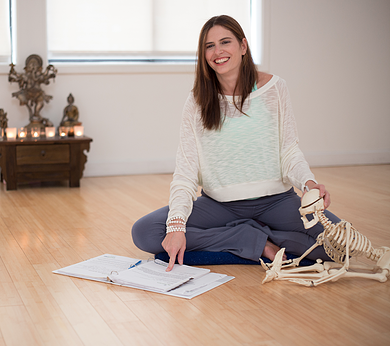A new online resource to teach yoga, breathing, and meditation is now available from the GI Research Foundation to further improve the lives of patients living with Crohn’s disease and ulcerative colitis.
Led by board member Biana Lanson, MD, and yoga instructor Gina Nolan, the GI Research Foundation developed a series of online videos and audio tracks, which can be found at ibdyoga.com. The trainings range from a few minutes to full-length active practice sessions, and are available free of charge on the website as a service to the IBD community.
Project leader, IBD patient, and yoga enthusiast, Lanson, explains, “I wanted to bring these resources to other patients, after I experienced just how much my own personal yoga practice improved my life and my IBD.”
Many research studies show that the use of relaxation techniques like yoga, deep breathing, and meditation as complementary therapies can help patients feel better and achieve better outcomes. In one such study, after just eight weeks of yoga practice, fewer participants with ulcerative colitis reported joint pain and they also experienced lower levels of anxiety. Participants practicing yoga regularly reported lower levels of abdominal pain. After twelve weeks, significant differences were observed in anxiety, depression, lifestyle, and IBD symptoms between those in the study practicing yoga and those in a control group.
Yet for patients with IBD, it can be intimidating or logistically challenging to get to the gym or yoga studio, and in the studio, these techniques are not always tailored to those living with chronic illness.
The resource offers benefits for physicians and researchers as well, providing a safe and effective complementary therapy option for clinicians to offer their patients. Likewise, for researchers, the web resource affords the opportunity to further explore their utility.
Three types of trainings are available on the website, and are all conducted by a licensed yoga instructor, walking practitioners through short breathing exercises, longer active yoga practices, and meditations, including a guided meditation specifically for GI pain and symptom relief.
GI Research Foundation Medical Director David T. Rubin, MD, explains, “we want patients to be true partners with their medical teams in their treatment plans. For many patients, outlets like yoga, breathing techniques, and meditation have been shown to be very helpful in supporting their medical therapy, and helping them to achieve their personal goals.”

